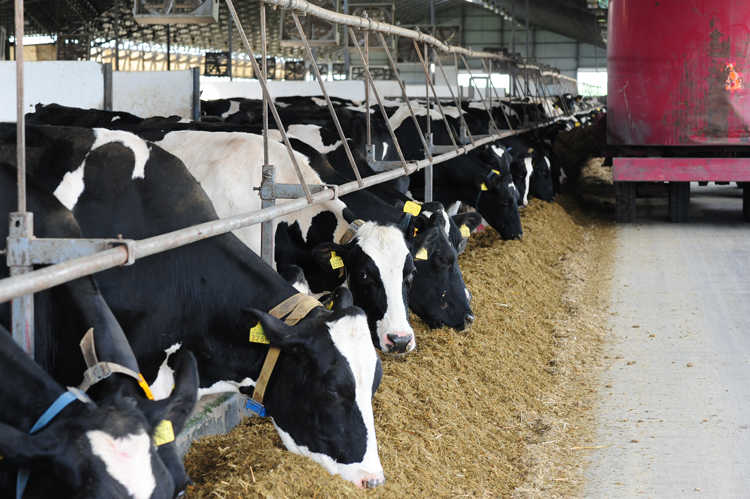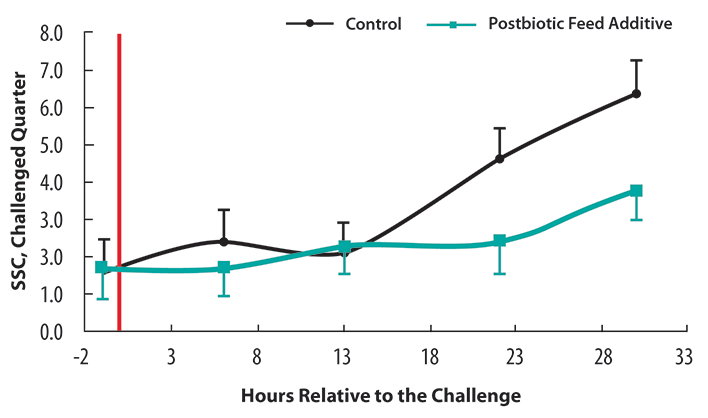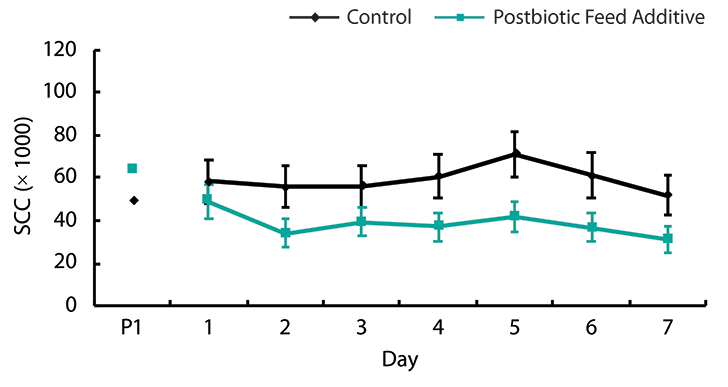
Nutrition plays a vital role in the functionality of a cow’s immune system. Deficiencies in key nutrients will greatly reduce immunity, so feeding to requirements, without cutting corners, must be the basis of every dairy operation. However, new research shows that targeted supplementation can promote immune function beyond what is considered normal.
Cows with strong immune systems do a good job of fighting off mastitis-causing pathogens:
The immune system has numerous different components, both pathogen specific and nonspecific, which can reduce or eliminate bacterial invasion of the mammary gland. Nutrition can impact these components in a variety of ways, either supporting or impairing immune function. First, immune cells require specific nutrients, like selenium, copper, zinc, calcium, and vitamins (e.g., vit A, D, and E), and when cows are fed a diet lacking them, this can impair their defenses, all the while still providing proper nourishment for other important functions, such as milk and components production. So, while a diet might support substantial milk production, at the same time, the risk of mastitis can increase due to deficient immune function. Second, proper nutrition can reduce the occurrence of metabolic conditions that suppress immunity, helping reduce the risk of mastitis. Finally, nutrition can go beyond meeting requirements and boost immune function beyond average.
Research shows postbiotics can have a positive effect on reducing mastitis:
Promising results showing reduced mastitis incidence and lower somatic cells scores from use of postbiotic feed additives, specifically a Saccharomyces cerevisiae fermentation product (SCFP), were first reported by Dr. Jim Ferguson (U Penn Vet School) in 2018. Dr. Juan Loor conducted the 2021 University of Illinois trial to evaluate the impact of SCFP postbiotic, during a case of clinical mastitis. At the end of the challenge (36 hours post infection), the somatic cell count of the infected quarter was four-fold greater in control cows compared to those that consumed the postbiotic feed additive. These boosted defenses allowed postbiotic fed cows to maintain higher feed intake and milk yield both during the challenge and in the month following it.

Heat stress can also compromise the reproduction, productivity, and health of a dairy cow. For example, a 2020 Iowa State University trial conducted in Dr. Lance Baumgard’s lab included the same SCFP postbiotic feed additive in dairy cow diets and then subjected them to a week-long heat stress challenge via electric heat blankets. Compared to control cows not fed the postbiotic additive and also subjected to heat stress, SCFP fed cows had almost 50% lower plasma cortisol, the stress related and immune suppressant hormone, and higher amounts of immune cells (9% to 26% more) in their blood. Postbiotic fed cows had a 36% lower somatic cell count during the intense heat stress challenge.
Somatic Cell Count (SCC)

Nutritional strategies to promote udder health, such as incorporating a postbiotic feed additive, will have great effects on all other systems, generating returning benefits in reproduction and gut, feet, and respiratory health.


